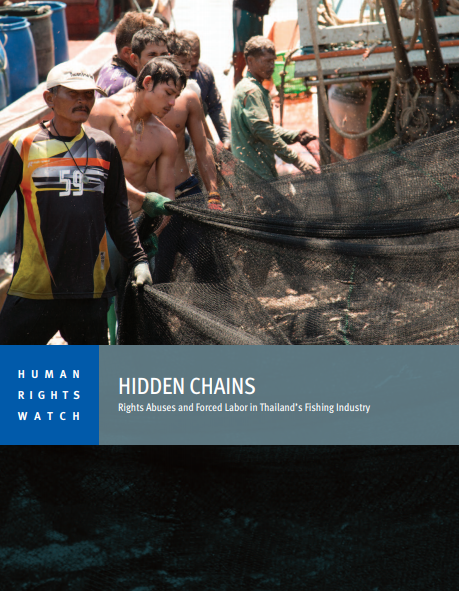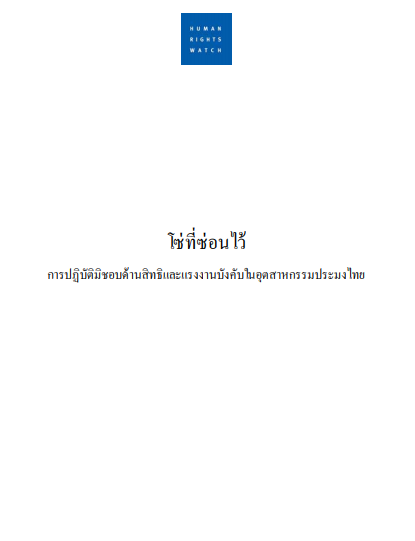Thailand: Forced Labour, Trafficking Persist in Fishing Fleets
Forced labour and other rights abuses are widespread in Thailand’s fishing fleets despite government and industry commitments to comprehensive reforms. The report Hidden Chains: Rights Abuses and Forced Labour in Thailand’s Fishing Industry, by Human Rights Watch, describes how migrant fishermen...


